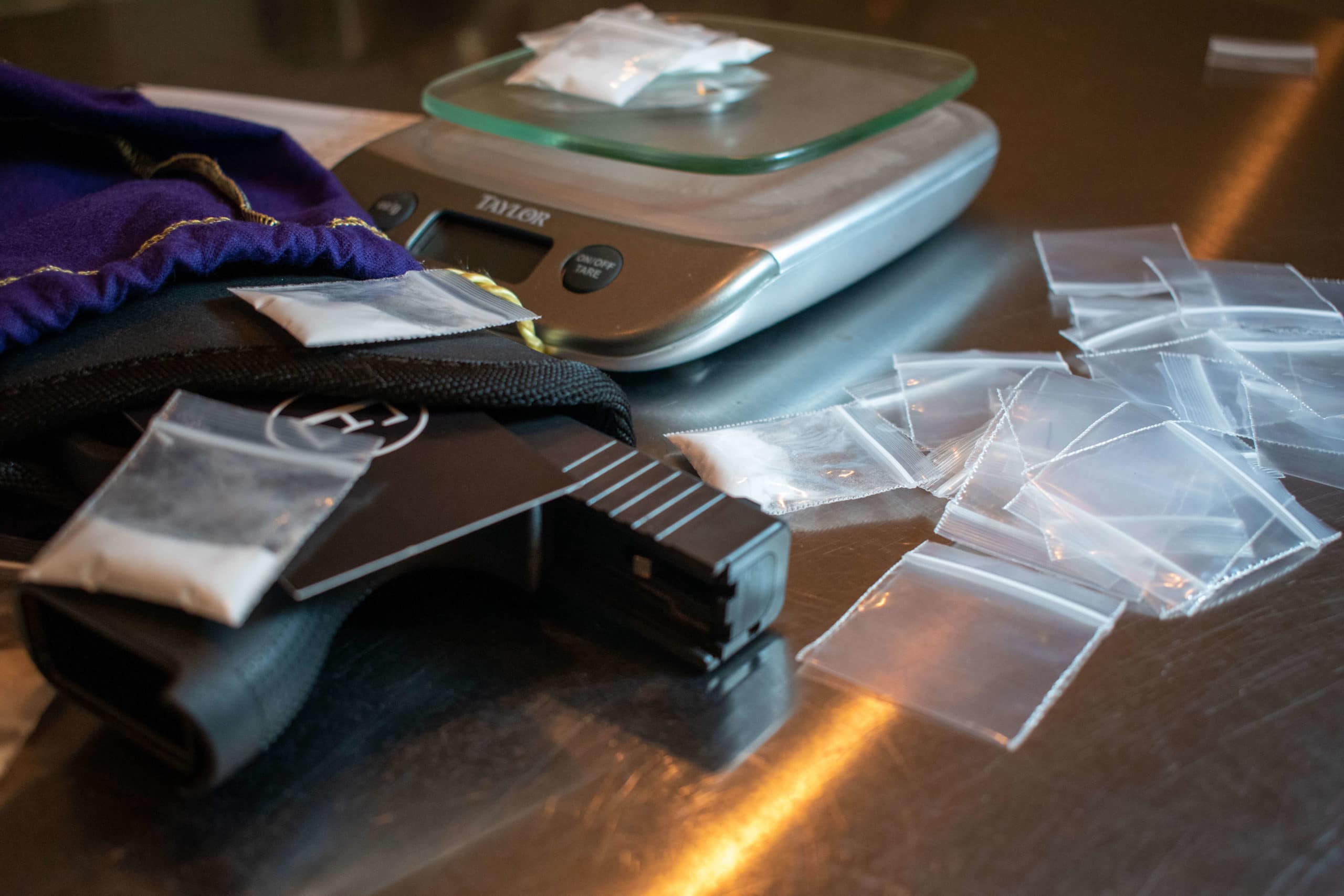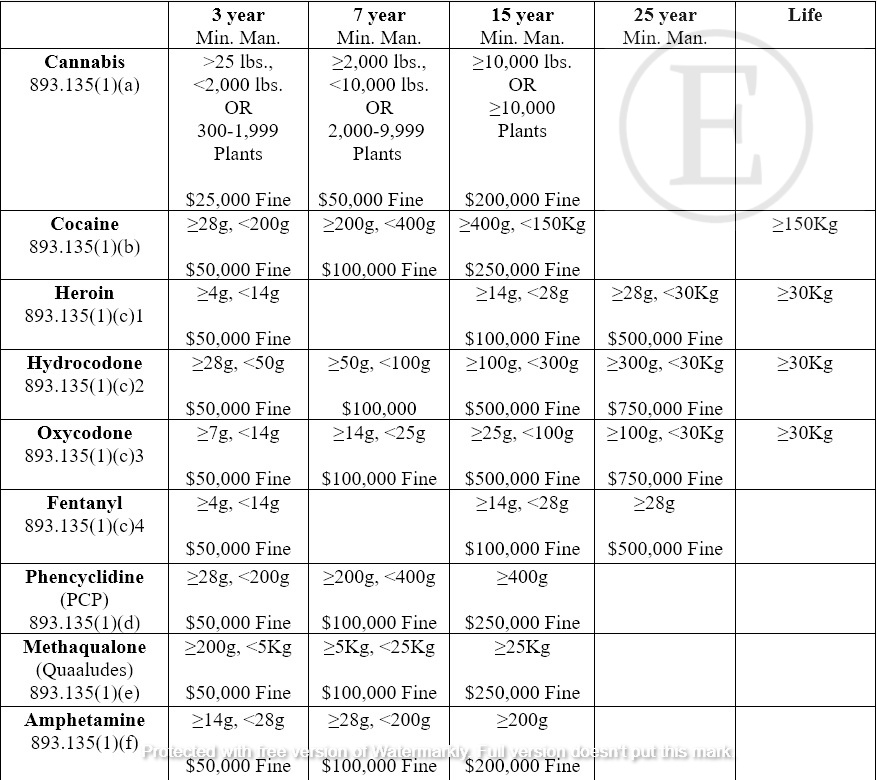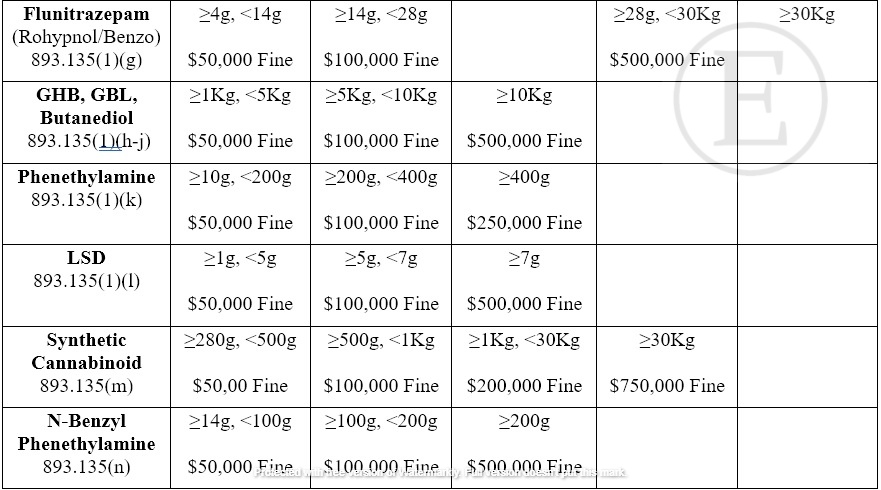
Drug Trafficking
Elsea Law Criminal Defense Drug Charges Drug Trafficking
- "His genuine care and compassion for my wellbeing made the process as painless as possible." Read More
- "Mr. Elsea made me feel valued as a client and always had my best interest at heart. Very informative and punctual with my case." Read More
- "His attention to detail was impeccable! I highly recommend him." Read More
- "oel provided the best customer service by always maintaining active contact with me and providing frequent updates." Read More
- "I never once felt out of the game with Mr. Elsea. I am thankful for the extra steps Mr. Elsea took with my case." Read More
The term “Florida drug trafficking” might evoke images of cigarette boats, bricks of pure cocaine, and Tony “Scarface” Montana. The state of Florida has certainly played a part in every phase of countless drug trafficking operations over the years- as a point of origin (think pill mills and prescription fraud in the ‘00s), as a point of importation (like the Cocaine Cowboys in the ‘70s and ‘80s), and as a point of consumption by the end user (see Sunset Music Festival, Tampa, 2010s). But the crime of trafficking in illegal drugs involves activity beyond the stereotypes that quickly come to mind. Here we will examine what trafficking is, what it is not, and what you need to know about Florida state drug trafficking charges.
Tampa Drug Trafficking Defense Attorney
If you or a loved one has been charged with drug trafficking in Tampa, Hillsborough County, or the surrounding areas, it is critical to hire an experienced Tampa criminal defense attorney to help fight the case and defend your rights. Elsea Law Firm, P.A. has over a decade of felony criminal law experience- including litigating Florida’s stringent drug trafficking laws.
Drug Trafficking in Tampa, FL
Florida Statute 893.135 defines trafficking in Florida, and prohibits conspiracy to traffic within the same statute. The statute is lengthy and contains many sections and subsections. In summary, it prohibits the possession, sale, delivery, or importation of controlled substances over a threshold amount. The trafficking threshold amount varies by substance. Some of the most commonly trafficked controlled substances in Florida include:
- Marijuana
- Cocaine
- Heroin
- Amphetamines
- Various prescription medications (e.g., Hydrocodone, Xanax, and others)
- Ecstasy
What are the Penalties for Drug Trafficking in Tampa, Florida?
All trafficking charges are first degree felonies, at a minimum. That means they carry a maximum prison sentence of thirty (30) years. Additionally, trafficking charges have minimum-mandatory sentences that set them apart from other drug charges. These include prison terms and fines. See the Elsea Law Firm Trafficking Quick Guide for minimum-mandatories, which is based on 2020 Florida Statutes.
Elsea Law Firm Drug Trafficking Quick Guide



What are Florida’s Drug Schedules?
Controlled substances are categorized at the federal level into five schedules according to their medical usefulness and potential for abuse. Florida’s schedules mirrors the federal schedule and is found at Florida Statutes 893.03. A summary:
- SCHEDULE I.—A substance in Schedule I has a high potential for abuse and has no currently accepted medical use in treatment in the United States and in its use under medical supervision does not meet accepted safety standards.
- Examples: heroin, lysergic acid diethylamide (LSD), cannabis
- SCHEDULE II.—A substance in Schedule II has a high potential for abuse and has a currently accepted but severely restricted medical use in treatment in the United States, and abuse of the substance may lead to severe psychological or physical dependence.
- Examples: cocaine, methamphetamine, oxycodone
- SCHEDULE III.—A substance in Schedule III has a potential for abuse less than the substances contained in Schedules I and II and has a currently accepted medical use in treatment in the United States, and abuse of the substance may lead to moderate or low physical dependence or high psychological dependence or, in the case of anabolic steroids, may lead to physical damage.
- Examples: anabolic steroids, testosterone, ketamine
- SCHEDULE IV.—A substance in Schedule IV has a low potential for abuse relative to the substances in Schedule III and has a currently accepted medical use in treatment in the United States, and abuse of the substance may lead to limited physical or psychological dependence relative to the substances in Schedule III.
- Examples: alprazolam (Xanax), diazepam (Valium), zolpidem (Ambien)
- SCHEDULE V.—A substance, compound, mixture, or preparation of a substance in Schedule V has a low potential for abuse relative to the substances in Schedule IV and has a currently accepted medical use in treatment in the United States, and abuse of such compound, mixture, or preparation may lead to limited physical or psychological dependence relative to the substances in Schedule IV.
- Examples: pregabalin (Lyrica), most cough syrups like Robitussin AC
This schedule is often used as a starting point for the legislature when decisions are made about whether and how to criminalize certain substances. Generally speaking, more lenient rules (including trafficking penalties, if any) apply to substances as the schedule number increases. Florida’s drug schedule should NOT be used to determine the severity of trafficking charges, however. The positions of Cannabis (Schedule I, 25 pound trafficking minimum) and Oxycodone (Schedule II, 7 gram trafficking minimum) on the schedule are illustrative of this point. Again, Florida Statute 893.135 addresses trafficking.
Three Things You Should Know About a Florida Drug Trafficking Charge
1: Trafficking is a number, not an action.
Under Florida law, you don’t really have to DO anything with an illegal drug to be guilty of trafficking it. By the same token you can import, export, buy, sell, or otherwise distribute any drug without trafficking it. It’s all about the number- the amount of drugs at issue. In most cases, that number is weight. One can be guilty of trafficking by simply possessing the requisite amount of an illegal substance.
“Any person who knowingly sells, purchases, manufactures, delivers, or brings into this state, or who is knowingly in actual or constructive possession of, in excess of 25 pounds of cannabis, or 300 or more cannabis plants, commits a felony of the first degree, which felony shall be known as “trafficking in cannabis.”
The possession rule that applies to cannabis (above) applies to all other controlled substances listed in the trafficking statute.
2: Straight from the Source or Diluted Downstream Product?
It doesn’t matter. Florida trafficking laws make no distinction between a kilogram of snowy white powder that contains 99% pure cocaine and a kilogram of light brown rocks and dust that contains 2% cocaine. A person who was found guilty of trafficking either substance would be subject to a 15 year minimum-mandatory sentence and a $250,000 fine.
“Any person who knowingly sells, purchases, manufactures, delivers, or brings into this state, or who is knowingly in actual or constructive possession of, 28 grams or more of cocaine, as described in s. 893.03(2)(a)4., or of any mixture containing cocaine, but less than 150 kilograms of cocaine or any such mixture, commits a felony of the first degree, which felony shall be known as “trafficking in cocaine.”
“Mixture” means any physical combination of two or more substances, including, but not limited to, a blend, an aggregation, a suspension, an emulsion, a solution, or a dosage unit, whether or not such combination can be separated into its components by physical means, whether mechanical or thermal.”
The mixture rule that applies to cocaine (above) applies to almost every other controlled substance, including methamphetamine, heroin, and fentanyl.
3: The “War on Drugs” is not a Cold War in the Sunshine State
The Drug Enforcement Administration was established by President Richard Nixon in 1973. In the 1980s, Nancy Reagan told people to “Just Say No” while her husband signed the Anti-Drug Abuse Act and imposed new minimum-mandatory sentences at the federal level. More recently, people of all political persuasions have begun to question the efficacy of the decades-long national “War on Drugs.” But if you think that Florida’s 2014 recognition and subsequent expansion of legal medical marijuana usage signaled a relaxation in the enforcement of trafficking laws by officers, their departments, or state officials- think again.
Officer Level
Law enforcement officers use many tactics to build trafficking cases. These officers pose as buyers and sellers of narcotics, and often aim to work a case up until a trafficking amount is involved. These law enforcement officers receive specialized training and they know the trafficking threshold amounts for controlled substances. They will negotiate deals using slang and street terms for the drugs (and the quantity of drugs) at issue. They will ask for amounts of drugs using standard weights when the trafficking statutes specify metric weights and vice versa. Confidential informants- people who are not even sworn law enforcement agents- are routinely used in these investigations. These “C.I.’s” will often be paid cash by local law enforcement to make introductions and participate in deals. Other times, confidential informants are people who are “working off” their charges after having been arrested themselves.
Department Level
Local law enforcement agencies often organize specialized units to address drug issues (including trafficking) and then disband them in response to local conditions. The Tampa Police Department’s QUAD (Quick Uniform Attack on Drugs) Squad is just one example. Local law enforcement departments utilize tips from utilities like TECO to investigate marijuana “grow houses” that use large amounts of electricity. Trafficking investigations are often the genesis of civil forfeiture actions- actions in which to government seizes private property under the theory that it was the product of or was used in the commission of a crime.
State Level
Florida lawmakers recognize that the legislature alone is not equipped to keep pace with the ever-evolving landscape of recreational drug consumption. As such, the Attorney General has authority to add newly-created designer drugs to Florida’s drug schedule.
893.035 Control of new substances; findings of fact; delegation of authority to Attorney General to control substances by rule.—
“(1)(a) New substances are being created which are not controlled under the provisions of this chapter but which have a potential for abuse similar to or greater than that for substances controlled under this chapter. These new substances are sometimes called “designer drugs” because they can be designed to produce a desired pharmacological effect and to evade the controlling statutory provisions. Designer drugs are being manufactured, distributed, possessed, and used as substitutes for controlled substances.”
This law allows the Attorney General, the state’s “top cop”, to fast track new substances for inclusion in Florida’s drug schedule. This gives legislators extra ammunition to criminalize new substances.
Criminal Defense Attorney Near Me
If you or a loved one have been charged with or accused of drug trafficking, contacting an experienced drug crime defense attorney in Tampa is critical in getting a head start on your defense and ensuring your rights remain protected. Contact the Elsea Law Firm, P.A. today for a free consultation with an experienced attorney.